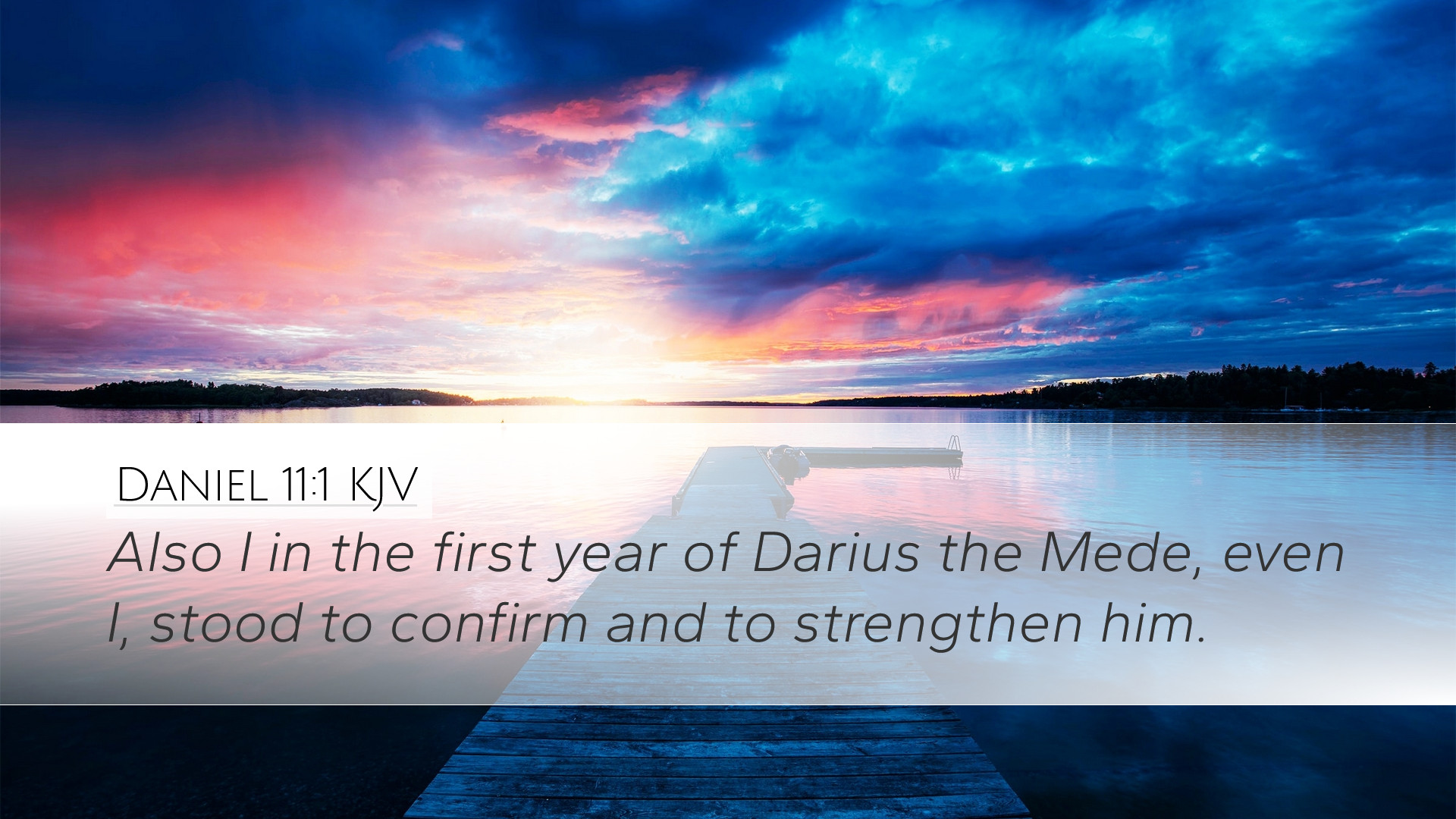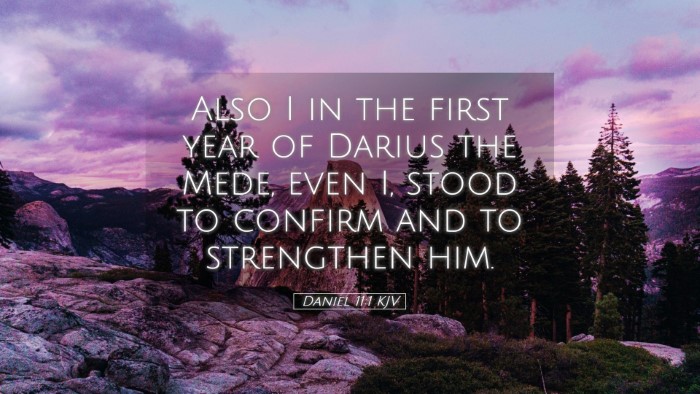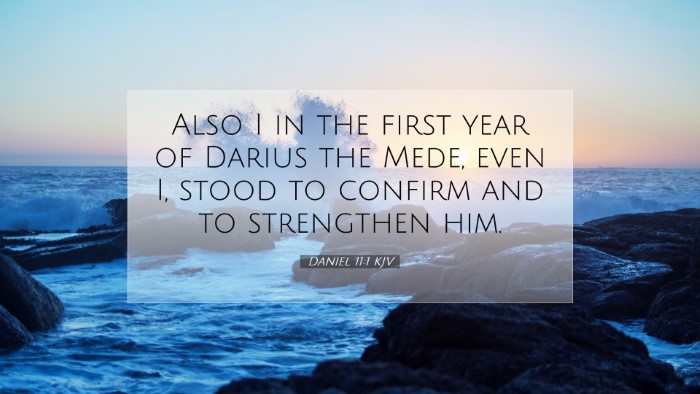Commentary on Daniel 11:1
Bible Verse: "And I in the first year of Darius the Mede, even I, stood to confirm and to strengthen him."
Introduction
The eleventh chapter of Daniel is often regarded as one of the most complex and detailed prophetic sections of Scripture. Daniel 11:1 serves as an introduction to the extensive prophecy that follows, focusing on the unfolding of historical events from the time of the Persian Empire to the Hellenistic period. This verse emphasizes the role of angels in the divine plan and provides insight into the spiritual warfare that underpins earthly events.
Insights from Commentators
Matthew Henry
Henry notes that this verse highlights the significant role that angels play in God's governing of the world. The reference to "Darius the Mede" places this moment in a chronological framework that connects the previous prophecies to the forthcoming visions of empires. Henry emphasizes that the angel's mission was to "confirm and strengthen" Darius, illustrating that God’s providence extends even to earthly rulers. This encouragement signifies not only God’s support for Darius but also reflects His overarching authority over the nations.
Albert Barnes
Barnes provides a historical context, noting that the "first year of Darius" marks a time of transition for the Jews after Babylonian captivity. He interprets the “he” in the verse as referring to Daniel himself, who has been divinely appointed to support and intercede for the leaders of the earth. Barnes emphasizes that this illustrates the close relationship between divine prophecy and the political landscape, showing how God uses His servants to influence rulers according to His purposes.
Adam Clarke
Clarke delves into the identity of Darius and the significance of this vision occurring in the first year of his reign. He suggests that the Medo-Persian Empire had a pivotal role in God's plan for Israel's restoration. Clarke points out that this verse serves as a reminder that God’s kingdom often operates through seemingly secular leaders, thereby reinforcing the notion that divine sovereignty can manifest in unexpected ways. He comments on the necessity of prayer and divine support in establishing a righteous governance that reflects God's will.
Theological Significance
This verse underscores several critical theological themes:
- The Sovereignty of God: God's governance over the nations is evident, displaying that He orchestrates historical events according to His divine plan.
- The Role of Angels: The mention of the angel reinforces the belief in spiritual realities and the unseen battles that involve God's emissaries working on behalf of His people.
- The Intercessory Role of Believers: Daniel's position as an intercessor reflects the responsibility of believers to pray for leaders and nations, highlighting the importance of divine support in governance.
- The Assurance of God’s Plan: In the midst of turmoil and change, this verse assures the faithful that God is still at work, confirming and strengthening authority for the fulfillment of His promises.
Practical Applications for Today
The insights gained from Daniel 11:1 present several applications for pastors, scholars, and students:
- Prayer for Leaders: The necessity of praying for government officials is paramount, as their decisions impact the larger context of faith and community.
- Understanding the Times: Knowing the historical and political landscape of our times can assist in discerning how God may be moving in the world today.
- Engaging with Spiritual Warfare: Recognizing the role of spiritual forces encourages a biblical perspective on the challenges faced in ministry and society.
- Encouragement and Support in Ministry: Just as Daniel was called to strengthen Darius, pastors and leaders should seek to uplift and assure their congregations of God’s presence and guidance.
Conclusion
Daniel 11:1 acts as a crucial entry point into a complex prophecy that not only reflects past events but also serves as a paradigm for understanding God’s providence in the unfolding of history. The insights from Henry, Barnes, and Clarke collectively enrich our understanding, inviting us to appreciate the multifaceted nature of divine interaction with human affairs. As we engage with this text, may we be compelled to deepen our prayer life, intercede for leaders, and remind ourselves of God’s ultimate authority over all the nations.


